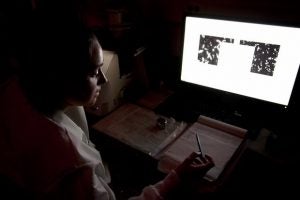ANN ARBOR, MI — The University of Michigan will attempt to convert human urine into a safe fertilizer for agriculture crops as part of a new $3 million grant.
University of Michigan engineering researchers lead the project with the help of the grant from the National Science Foundation. They will work with colleagues at the Vermont-based Rich Earth Institute, U-M School of Natural Resources and Environment, U-M School of Public Health, University at Buffalo and an independent communications consultant, according to a news release.
The team is installing special demonstration toilets in the G.G. Brown building on U-M’s North Campus. The toilets, which include a waterless urinal and a “source separating” flush toilet, will route urine to a holding tank where it will be treated. It will eventually be used to create fertilizers that will be used at the Matthaei Botanical Gardens. The toilet facilities will be open for use this fall.
Rebecca Lahr, a former post-doctorate student at
the University of Michigan’s Environmental and Civil
Engineering department, counts organisms in a drop of
urine in an effort to determine how to make safe urine
derived fertilizers for agriculture. Photo l Marcin Szczepanski
Urine contains nitrogen, phosphorus and potassium, which are all key nutrients that plants need to grow.
The new endeavor has the potential to grow food in a way that saves money and resources, and reduces water pollution, said U-M professor of civil and environmental engineering and project leader Nancy Love.
While the study aims to make advances in several areas, Love said none of that is possible unless the idea of using human urine as a fertilizer is embraced by the public at large.
“One is technology,” said Love in a news release, referring to the study’s potential benefits. “But we can throw all the technology in the world at this problem and make no progress towards implementation unless the second area is advanced — and that’s the social behavior piece. We’re investigating the attitudes people hold towards the use of urine-derived fertilizers and will be testing and evaluating educational interventions.”
Love leads the project with Krista Wigginton, U-M associate professor of civil and environmental engineering.
On the technology side, researchers will test advanced urine-treatment methods such as charcoal filtration, which is also used for purifying drinking water. The research team also will compare the public health and environmental risks of urine-derived fertilizers, synthetic fertilizers and biosolids — another name for treated sewage.
“We believe our work will take urine-derived fertilizer to a point where it’s safer than synthetic fertilizers and biosolids,” Love said.
The grant kicks off the nation’s largest program exploring the technology, systems requirements and social attitudes associated with urine-derived fertilizers. It expands work the group started a few years ago growing lettuce and carrots at a research plot in New England. Since 2014, the researchers have been exploring ways to remove bacteria, viruses and residual pharmaceuticals from urine to make it a viable fertilizer.
“We have methods for producing safe fertilizer from urine at the small scale, and now we are developing new technologies to meet the challenge of scaling up. At the same time, we will be assessing ways to introduce the idea of urine recycling into existing modes of thinking,” said Abraham Noe-Hays, director of research at the Rich Earth Institute, in a news release.
Article published by MLive on Sept 8, 2016




